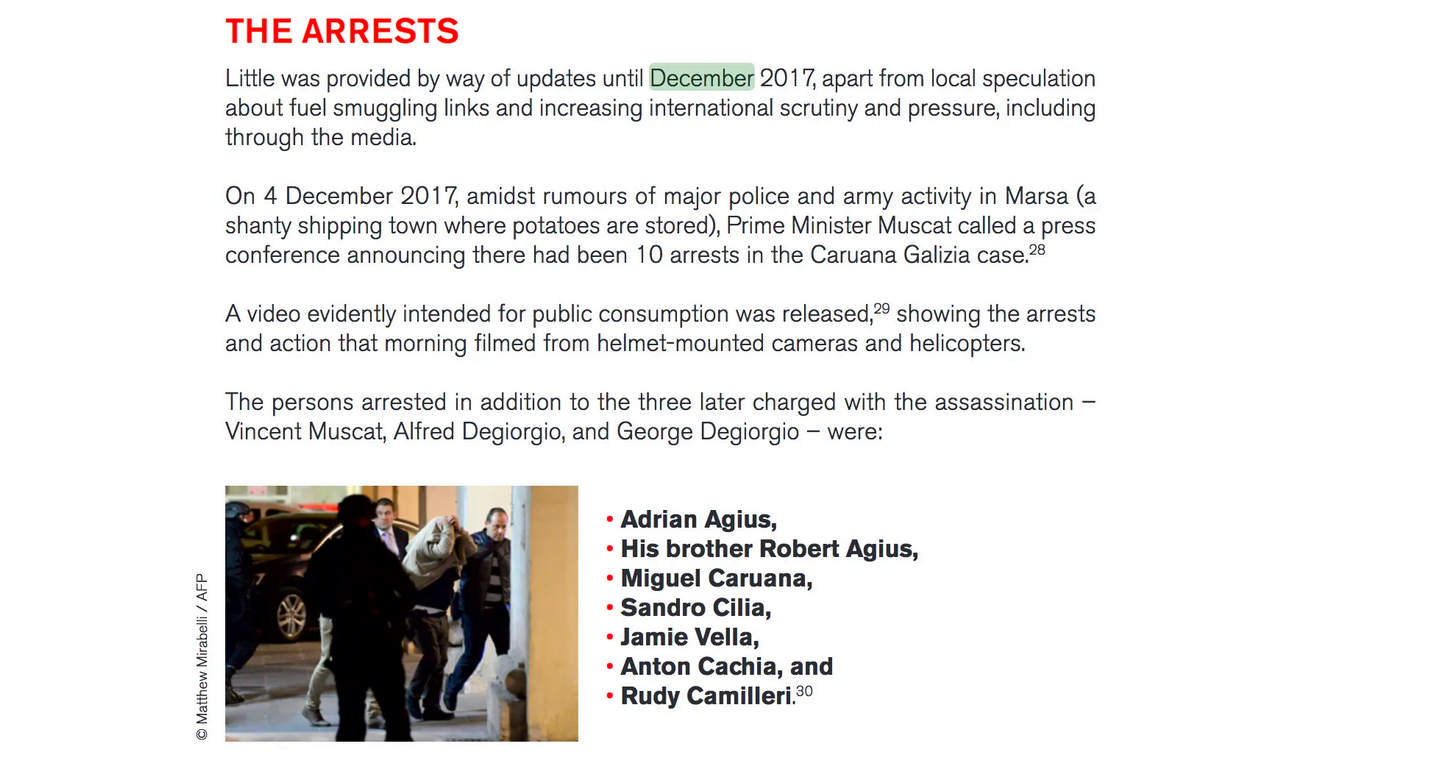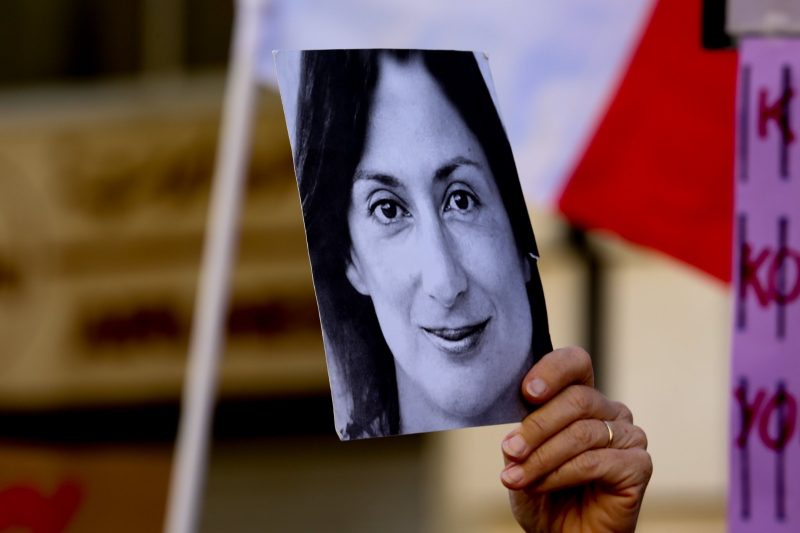Nascent steps towards justice are long overdue and underscore the urgent need for full justice for the horrific crime committed against journalist Daphne Caruana Galizia who was assassinated in Malta in October 2017 by a car bomb a few metres outside her home, Reporters Without Borders (RSF) said in a statement on Wednesday following the sentencing of one of the hitmen, Vince Muscat, yesterday.
Muscat was sentenced to 15 years in prison and ordered to pay over €40,000 in fines after surprisingly entering a guilty plea on Tuesday after more than two years in which he fought court procedures together with the other two accused – brothers Alfred and George Degiorgio.
RSF stressed that there were still questions that needed to be answered and this event was “only part of the picture of what happened to Daphne” and panned Prime Minister Robert Abela’s claim that these developments proved that Malta’s institutions were working.
The Degiorgio brothers continue to deny their involvement and will be tried separately. Muscat’s deal means he received a reduced sentence – the alternative was life in prison – to provide information on another case involving the murder of lawyer Carmel Chircop in 2015.
Muscat has been trying to negotiate some form of immunity since 2018. His request for a presidential pardon on the Caruana Galizia case was refused.
Chircop was a lawyer and a partner of the legal firm Dingli & Dingli when he was gunned down and killed inside a garage complex on 15 October 2015 on his way to work. Chircop was also an investor in a now defunct supermarket chain, More Supermarkets, and had loaned a substantial amount of money to the men connected to the supermarket chain.
One of those men, Ryan Schembri, absconded in 2014 leaving the company with enormous debts. Ryan Schembri is the cousin of Keith Schembri, chief of staff to disgraced former Prime Minister Joseph Muscat.
In March 2014, Chircop personally entered into a contract with Ryan Schembri to loan him the sum of €750,000. Also appearing as debtors on the contract were Schembri’s business partner Etienne Cassar, but also Adrian Agius.
The same Adrian Agius was arrested, together with his brother Robert and their associate Jamie Vella, soon after the deal with Vince Muscat was sealed.
They were all arrested and released over two years ago
The ‘Tal-Maksar’ brothers, Adrian and Robert Agius from Zebbug, were mentioned by Melvin Theuma, the self-confessed middleman, in the compilation of evidence against Yorgen Fenech.
Theuma told Magistrate Rachel Montebello that Fenech had often told him that the bomb was manufactured by ‘Tal-Maksar’.
Two months after Caruana Galizia’s death, the Agius brothers were among the 10 men arrested in a clampdown by police that led to George Degiorgio, Alfred Degiorgio and Vincent Muscat being charged with planting the bomb. However, apart from the three men that were charged, all the others were released within 48 hours.

The Agius brothers and Jamie Vella were among the 10 arrested including the Degiorgio brothers and Vincent Muscat in December 2017. Source: Justice Delayed, a report by Reporters Without Borders and The Shift.
The Agius brothers were not called in again, despite reports of their involvement in supplying parts of the bomb used in the journalist’s brutal murder. The Shift and RSF had already previously noted this lack of action by the authorities two years ago.
Like the Degiorgio brothers, the Agius brothers were also known to Malta’s law enforcement but were somehow still able to evade justice.
Robert Agius was acquitted on a charge of “association” in heroin trafficking late last year, with the State Advocate failing to file an appeal.
The prime minister’s statement that the ‘institutions are working’ following developments in the case yesterday did not fool international observers.
This is one of the reasons why Rebecca Vincent, among many others, was quick to respond to Robert Abela’s statement that these latest developments in the Caruana Galizia murder case are evidence that the country’s institutions are strong and working effectively. Vincent reiterated that it remains unacceptable for three years to have passed in order for these important steps to take place.
She went on to describe how Caruana Galizia’s assassination has shed light on a number of systemic failings in Malta’s rule of law and in the governing institutions and how these have been extensively documented by international bodies such as the Venice Commission.
When Abela was asked whether he had recused himself from the Cabinet deliberations about Muscat’s pardon, given that he had in the past, represented the Agius brothers, Abela said that he had stuck by his duty and presided over the meeting.












